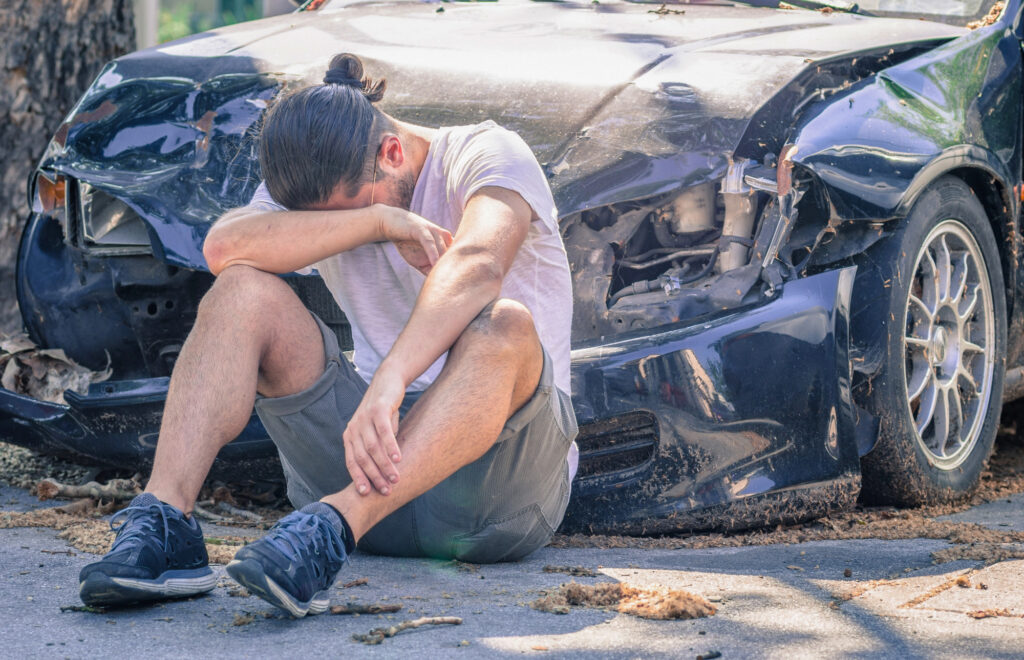Why Reporting Your Car Accident Matters More Than You Might Think
Share
Share

If you are ever in a car crash, then maybe you don’t know what to do in the aftermath. You might feel disoriented or frightened. Your adrenaline can spike. However, if you’ve ever experienced this situation before, you will know the appropriate steps to take.
If you have gone through this before, then you will probably know to do things like call 911 and to get your vehicle out of the road if you can. You will also know to give the police a detailed report of what happened. Once you get a chance, you’ll want to tell your insurance company about the incident as well.
Reporting a car accident can yield several unexpected benefits, while not doing so can backfire. We will talk about why that’s the case in the following article.
In most states and cities, if you are in a car accident, you must legally report the collision to the police as soon as you get a chance. Obviously, if the accident severely injures you, or you’re not conscious right after the wreck, then you can’t do it right then. You can talk to a representative from the police when you’re feeling up to it in the hospital later.
Sometimes, two drivers won’t report a car accident to the police if there’s just a minor fender bender. If you decide not to tell the authorities, that’s your prerogative.
If you don’t report what happened, though, maybe you’re violating the law. You will need to look at the language of any laws governing such conduct in the region in which the crash occurred.
It’s usually a mistake if you violate the law, but there’s an equally crucial reason why you should always tell the police if you’re in accident, even it seems like there’s no serious vehicle damage.
Let’s say that you’re in a car accident. Another vehicle runs into you from behind. When you get out of the car, you see that your rear bumper has a dent in it.
The other driver begs you not to call the police. They might suggest that they get some cash out of an ATM and give it to you on the spot.
If that happens, then maybe it’s because the other driver doesn’t have insurance. Perhaps they also don’t want to report the accident because they feel that their insurance premium could go up as a result.
If you agree, and you don’t file a police report, then you won’t have the other driver’s contact information later. Maybe the money that they give you doesn’t cover all the cost of repairing the car. If you take it to an auto body shop, they may tell you that it will cost a lot more to repair the damage than you estimated at the crash site.
There’s no record of the accident, so you can’t contact the other driver and ask them for more money. If they gave you a phone number at the scene, maybe it’s a fake.
If so, you’re out of luck. You will probably need to pay for the rest of the vehicle damage out of your own pocket.
You should also report an accident to your insurance company, even if it seems minor or the other driver begs you not to do so. If you file a claim with your insurance company, that’s the best way to get your policy to pay for it if you’re in a no-fault state.
In a no-fault car accident state, your insurance should pay for the damage to your vehicle, regardless of whether you or the other driver caused the accident. This way, you won’t have to pay for any of the damage out of pocket.
Also, if it turns out later that you want to sue the other driver for some reason, you can use the car accident report to your insurance company at trial. It should contain detailed information about the damage that the vehicle sustained.
You may also need to report the accident to not just the police and your own insurance company, but the other driver’s insurance company as well. That’s because the accident might take place in an at-fault state.
In an at-fault state, then the insurance of the driver who caused the wreck should pay for the damages to the vehicle, as well as for things like lost wages if you have to miss work or medical bills from accident-related injuries. If you feel that the other driver caused the accident, that means you must report what happened to their insurance company to get the financial compensation that you’re due.
If the other driver thinks that they didn’t cause the accident, or their insurance company feels that, then you will likely have to sue them. If you do, then you will feel glad that you told the police and your own insurance company about what happened as well as the other driver’s insurance company.
All of that documentation can help to establish that the other driver did, in fact, cause the accident. If the police report indicates that, then that’s helpful. Even if you didn’t try to get any money from your own insurance company, then relating to them what happened can improve your chances of winning a lawsuit as well.
In short, the more documentation you have after an accident, even if it seems relatively minor, the more likely that you will get a satisfactory resolution if you have to file a lawsuit. That’s why, even if the other driver tries to convince you that there’s almost no damage, and they try to pay for it on the spot, you might regret it later if you agree with them.
Leave a Reply